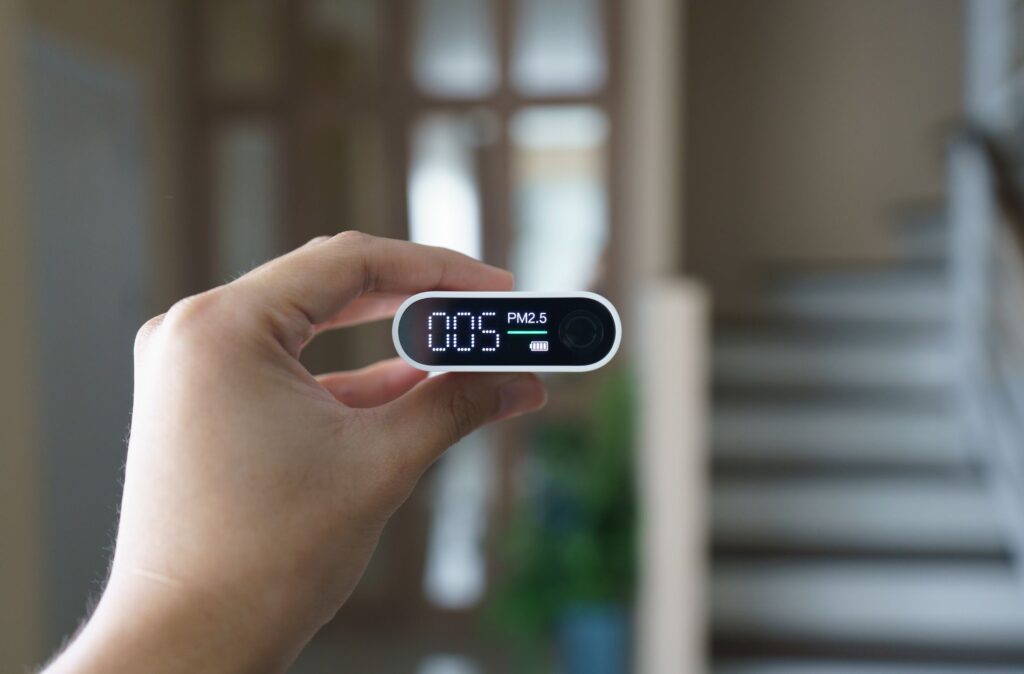Home and business owners often focus on finding the most efficient and cost-effective ways to maintain a comfortable environment within their properties. However, it’s essential not to overlook the significance of indoor air quality (IAQ) and its impact on our health and well-being. Poor IAQ can lead to various health problems, reduce overall comfort, and even contribute to higher energy costs.
A variety of factors can affect the quality of the air in your residential or commercial space. These include excess moisture, inadequate ventilation, contaminants such as mold and bacteria, and particulate matter from various sources such as dust, pollen, and pet dander. Furthermore, poor IAQ can also result from the off-gassing of chemicals present in building materials, furniture, and household products.
Occupants exposed to poor IAQ may experience various health issues, ranging from minor discomforts such as headache, dizziness, and fatigue to more severe respiratory problems like asthma and allergies. In some cases, long-term exposure to poor IAQ may lead to chronic health conditions.
Improving and maintaining good indoor air quality is vital for the health and well-being of your family or employees. Regular maintenance of your HVAC system plays a crucial role in this endeavor, as a well-functioning system helps regulate temperature, humidity, and eliminate contaminants from the air. Our professional technicians can provide expert guidance and services to ensure that your HVAC system effectively contributes to creating a healthy and comfortable indoor environment.
Read on as we discuss the factors affecting indoor air quality, the potential health risks associated with poor IAQ, and practical steps you can take to improve the air quality in your home or office. We’ll also explore the importance of maintaining your heating, ventilation, and air conditioning (HVAC) system to ensure optimal IAQ and highlight how our professional technicians can help you achieve and maintain a healthy, comfortable indoor environment.
Understanding Indoor Air Pollutants
Numerous culprits contribute to poor indoor air quality and can cause both short-term and long-term health effects. Some common indoor air pollutants include:
1. Volatile Organic Compounds (VOCs): Emanating from products such as paints, cleaning agents, and building materials, VOCs can lead to irritation of the eyes, nose, and throat, as well as more severe respiratory issues in some cases.
2. Mold and Mildew: Excess moisture can lead to the growth of mold and mildew, which release spores that can cause allergic reactions, asthma flare-ups, and other respiratory problems.
3. Particulate Matter: Dust, pollen, pet dander, and other tiny particles can trigger allergies and respiratory difficulties when suspended in the air.
4. Combustion By-products: Poorly maintained heating systems or gas appliances may produce harmful by-products such as carbon monoxide, nitrogen dioxide, and particles, posing a severe risk to occupants’ health.
Strategies to Improve Indoor Air Quality
Taking practical steps to improve your home or office’s indoor air quality can significantly enhance the well-being of your family or employees. Some strategies to consider include:
1. Proper Ventilation: Ensuring your space is well-ventilated can help dilute pollutant concentrations and maintain a clean indoor environment. Use ventilation fans in kitchens and bathrooms, and open windows when the weather allows.
2. Source Control: Address the root causes of indoor air pollution by removing or reducing pollutant sources in your home or office. This may involve using low-VOC products, addressing leaks and excess moisture promptly, and maintaining gas appliances and heating systems.
3. Regular Cleaning: Regular cleaning of surfaces, carpets, and upholstery can help minimize dust and other particulate matter accumulation.
4. Air Purifiers: Using air purifiers with High-Efficiency Particulate Air (HEPA) filters can help capture airborne pollutants and improve overall air quality.
5. Humidity Control: Maintaining an optimal humidity level (between 30%-50%) can prevent excessive moisture and consequently the growth of mold and mildew.
HVAC Maintenance and Indoor Air Quality
Your heating, ventilation, and air conditioning (HVAC) system plays a pivotal role in determining your indoor space’s air quality. To ensure optimal IAQ, it’s essential to maintain your HVAC system regularly, including:
1. Changing Filters: Dirty or clogged air filters can hamper airflow and lead to a buildup of pollutants in your breathing spaces. Regularly replacing filters promotes better air circulation and helps keep the air clean.
2. Cleaning and Inspecting Ducts: Dust, debris, and mold can accumulate in your ductwork, contaminating the conditioned air that circulates through your home or workplace. Periodically scheduling professional duct cleaning and inspection can help keep your ducts free of contaminants and contribute to a healthier indoor environment.
3. HVAC Tune-Ups: By scheduling regular tune-ups and periodic maintenance, you can ensure that your HVAC system operates efficiently and effectively, contributing to improved indoor air quality.
4. Properly Sized HVAC Equipment: Choosing the right size HVAC equipment for your space helps achieve optimal temperature and humidity levels while minimizing the risk of mold and mildew growth.
Calling on Our Professionals
Regular professional maintenance of your HVAC system plays a vital role in maintaining good indoor air quality. Our expert technicians can:
1. Inspect your heating and cooling systems for any issues that could affect air quality.
2. Perform routine maintenance tasks, including filter replacements, cleaning evaporator and condenser coils, and checking for leaks.
3. Assess and address any ventilation issues that could be impacting your indoor air quality.
4. Provide recommendations on additional tools, such as air purifiers or humidity control systems, to further improve IAQ.
By enlisting our professional expertise, you can ensure that your HVAC system remains in peak condition, safeguarding the health and comfort of your family or employees.
Conclusion
Maintaining good indoor air quality is crucial for the health and well-being of everyone in your home or office. By recognizing the primary sources of indoor air pollution, implementing effective strategies to improve IAQ, and regularly maintaining your HVAC system with the help of our experienced HVAC contractors in Springville, UT, you can create a comfortable and healthy indoor environment. Reach out to us at Complete Comfort Heating & Air Conditioning today to find out how we can help enhance the air quality in your home or workplace for the benefit of all occupants.




